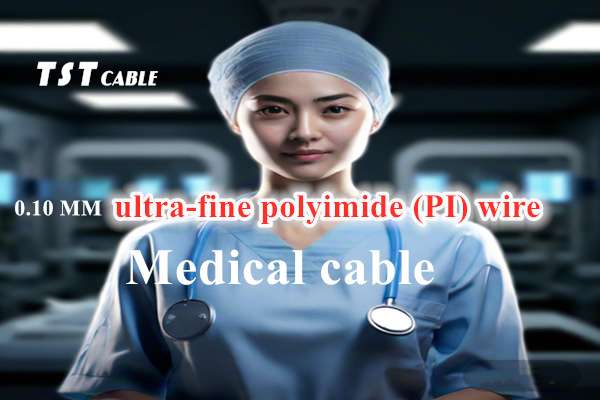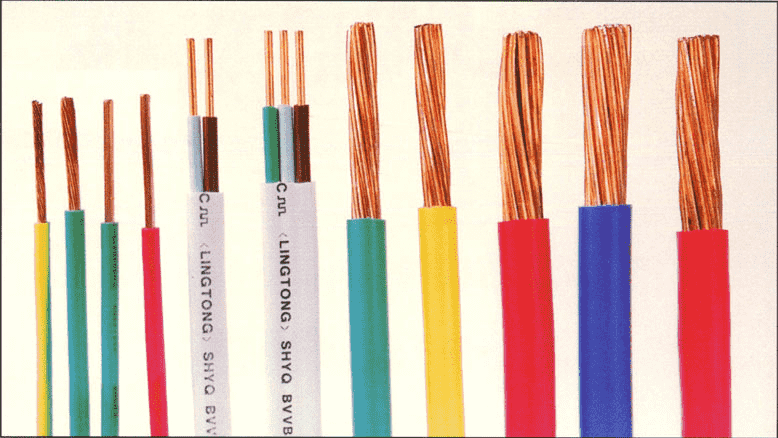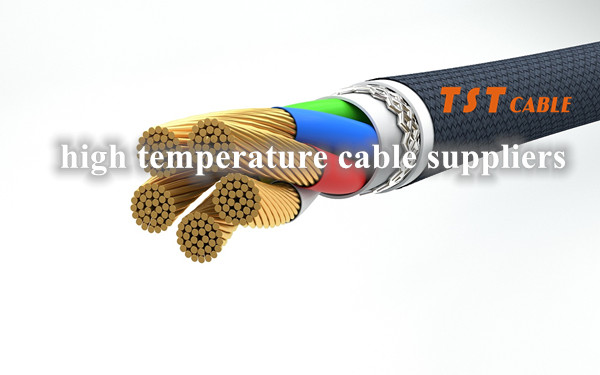Do you know what are the main characteristics and advantages of polyimide cable? What are the application areas? Is the material safe?

Polyimide cable (PI cable) has unique advantages in many high-end application fields due to its excellent electrical properties, high temperature resistance and chemical stability. The following is a detailed introduction to the characteristics, applications, testing standards, manufacturing processes and technological development trends of polyimide cables.
Features and advantages of polyimide cable (PI cable)
1. Excellent electrical performance
·High dielectric strength: Polyimide has high dielectric strength and can maintain stable insulation performance under high voltage conditions.
·Low dielectric constant: This means that the energy loss during signal transmission is small, which is suitable for high-frequency signal transmission applications.
2. Excellent thermal stability
·High temperature resistance: Polyimide materials can be used for a long time at temperatures up to 260°C, and the short-term temperature resistance can reach more than 400°C.
·Heat aging resistance: In high temperature environments, polyimide cables can still maintain their physical and electrical properties.
3. Chemical stability
·Corrosion resistance: Good resistance to most chemicals and not easily corroded.
·Moisture resistance: Good insulation performance can be maintained in a humid environment.
4. Mechanical strength
·Abrasion resistance: Polyimide cable has good wear resistance and tensile strength.
·Flexibility: Although it has high mechanical strength, it still maintains good flexibility, which is easy to install and wire.
Industry application of polyimide cable (PI cable)
1. Aerospace
·Aircraft internal wiring: Suitable for signal transmission and power supply inside aircraft such as aircraft and satellites.
2. Military equipment
·Weapon system: Used for electrical connection in military equipment such as missiles and radars.
3. Industrial automation
·Robot control cable: Used as control signal cable in industrial robots and automated production lines.
4. Medical equipment
·High-end medical instruments: Suitable for cable connection in high-end medical equipment such as MRI and CT scanners.
5. New energy
·Electric vehicles: Used as signal transmission cables in electric vehicle battery management systems (BMS).
·Solar photovoltaic: Used as connecting wires between solar panels.
Application of polyimide extrusion wire in high-end medical field
(I) Internal connection wire of medical equipment.
In medical equipment, such as electrocardiograph, B-ultrasound machine, CT machine, etc., a large number of connection wires are required to transmit electrical signals and data. Polyimide extrusion wire can be used as internal connection wire of these equipment, and its excellent performance can ensure the normal operation of the equipment and accurate transmission of signals.
(II) Medical sensor connection wire.
Medical sensors play an important role in medical diagnosis and monitoring. Polyimide extrusion wire can be used as connection wire of medical sensors. Its chemical resistance and high temperature stability can ensure the normal operation of sensors in various complex medical environments.
(III) Surgical instrument connection wire.
During the operation, some surgical instruments need to connect wires to achieve specific functions. The scratch resistance and high mechanical strength of polyimide extrusion wire make it very suitable as a connection wire for surgical instruments, and it can withstand various external forces and friction during the operation.
(IV) Minimally invasive surgical instruments.
In minimally invasive surgery, the cables of instruments need to move and bend frequently in a small space. The wear resistance and flexibility of polyimide medical cables can ensure the precise operation of the instruments and stable signal transmission.
(V) Medical imaging equipment.
Cables in equipment such as CT and MRI need to work in strong magnetic fields and complex mechanical structures. The low dielectric loss and wear resistance of polyimide help improve image quality and equipment reliability.
(VI) Rehabilitation therapy equipment.
Cables used to connect various rehabilitation therapy instruments and the patient’s body need to withstand frequent use and stretching. The durability of polyimide cables can meet the needs of long-term use.
Polyimide cable (PI cable) test standards
Polyimide cables need to pass a series of rigorous tests to ensure their quality and performance:
· IEC 60227: General cable standard, covering tests on electrical properties, mechanical properties, etc.
· UL 1581: Cable testing standards established by Underwriters Laboratories, including tests such as fire resistance and smoke density.
·ASTM D257: Measures the volume resistivity and surface resistivity of materials.
·ISO/IEC 24702: International standard for aviation cables, covering requirements for heat resistance, oil resistance, radiation resistance, etc.
Polyimide cable (PI cable) manufacturing process
1. PI cable conductor production
·Use high-purity copper or silver-plated copper as the conductor material to ensure good conductivity.
2. PI cable insulation layer extrusion
·Use the extruder to evenly wrap the polyimide material around the conductor to form an insulation layer.
3. PI cable coating treatment
·Coat special materials on the surface of the insulation layer to enhance the heat resistance and mechanical strength of the cable.
4. PI cable braiding or armoring
·Use metal wire or fiber material to braid or armor the cable to improve its tensile performance and protection ability.
5. PI cable sheath extrusion
·The last step is to extrude the outer sheath material and cover it on the surface of the cable to provide additional protection.
Polyimide cable (PI cable) technology development trend
1. PI cable material innovation
·Develop new polyimide materials to further improve the temperature resistance and mechanical strength of the cable.
2. Intelligent integration
·Integrate sensor technology to realize real-time monitoring of cable status and improve the intelligence level of the system.
3. Environmentally friendly materials
·Use recyclable or biodegradable materials to reduce the impact on the environment and meet the requirements of green manufacturing.
4. Multifunctional composite
·Research and develop composite cables with multiple functions, such as signal transmission and power transmission capabilities.
【Resistant to extreme high temperature 200℃~1200℃——TST CABLES polyimide cable leads the future】
In high-tech application fields, the reliability of power transmission and signal transmission is crucial. The polyimide extruded cable launched by TST CABLES has become an ideal choice for aerospace, military equipment, medical, rail transportation, nuclear power wind power, industrial automation and other fields with its excellent electrical performance, high temperature resistance and chemical stability. Whether it is stable operation in extreme high and low temperature environments or efficient transmission in complex systems, polyimide cables can provide you with safe and reliable protection. Polyimide cables have shown great potential in a variety of high-end applications. With the continuous advancement of technology in the future, their application scope will be further expanded.
Also available in:
English




